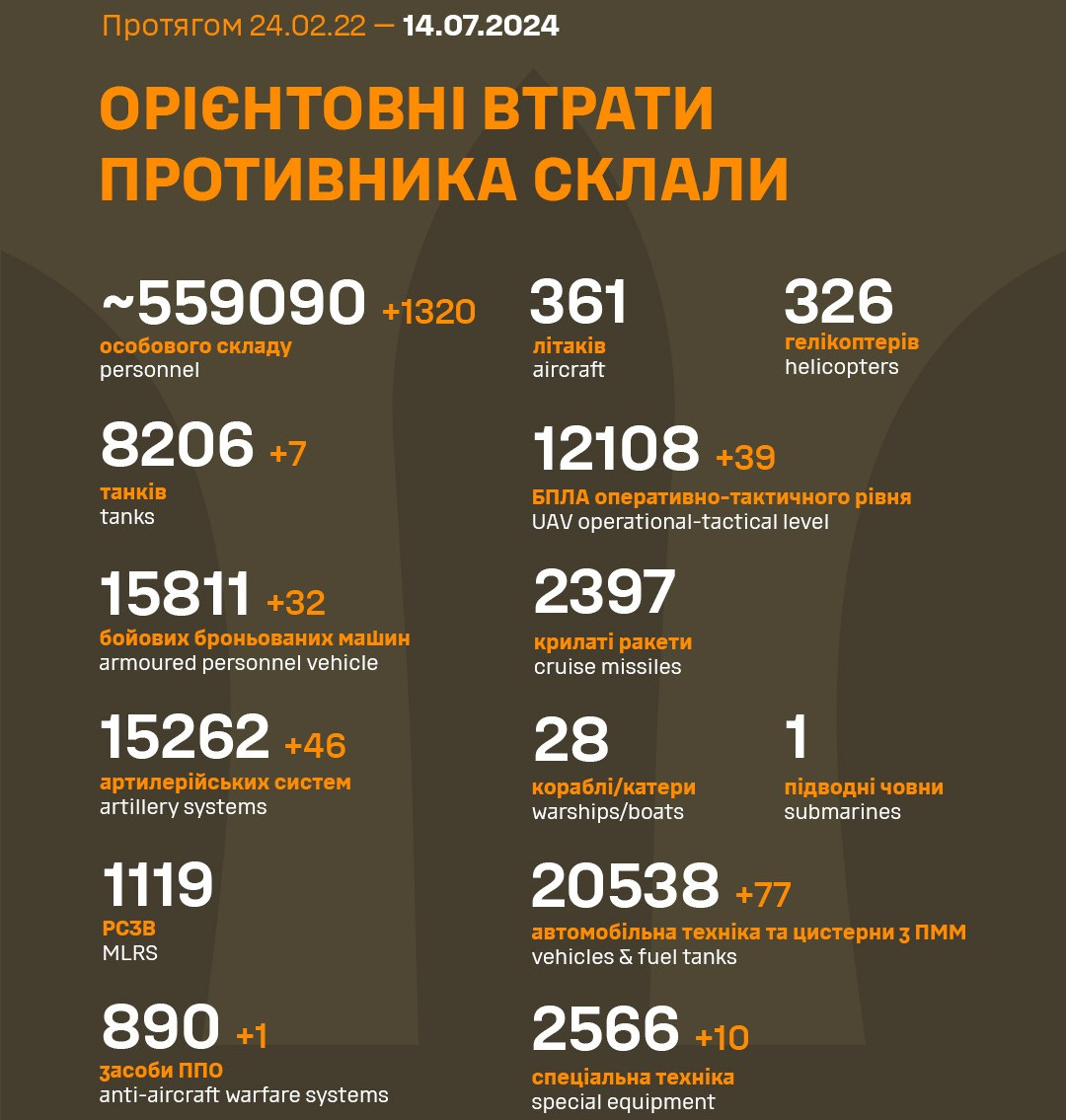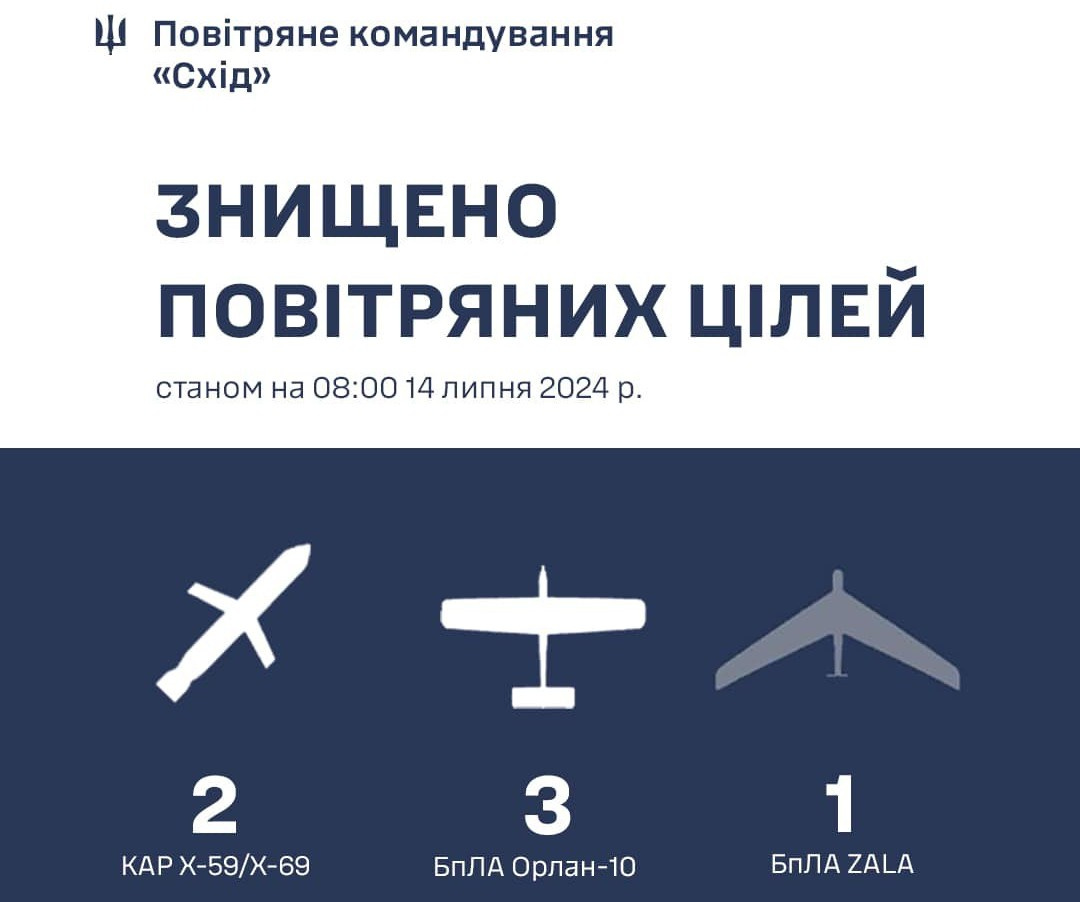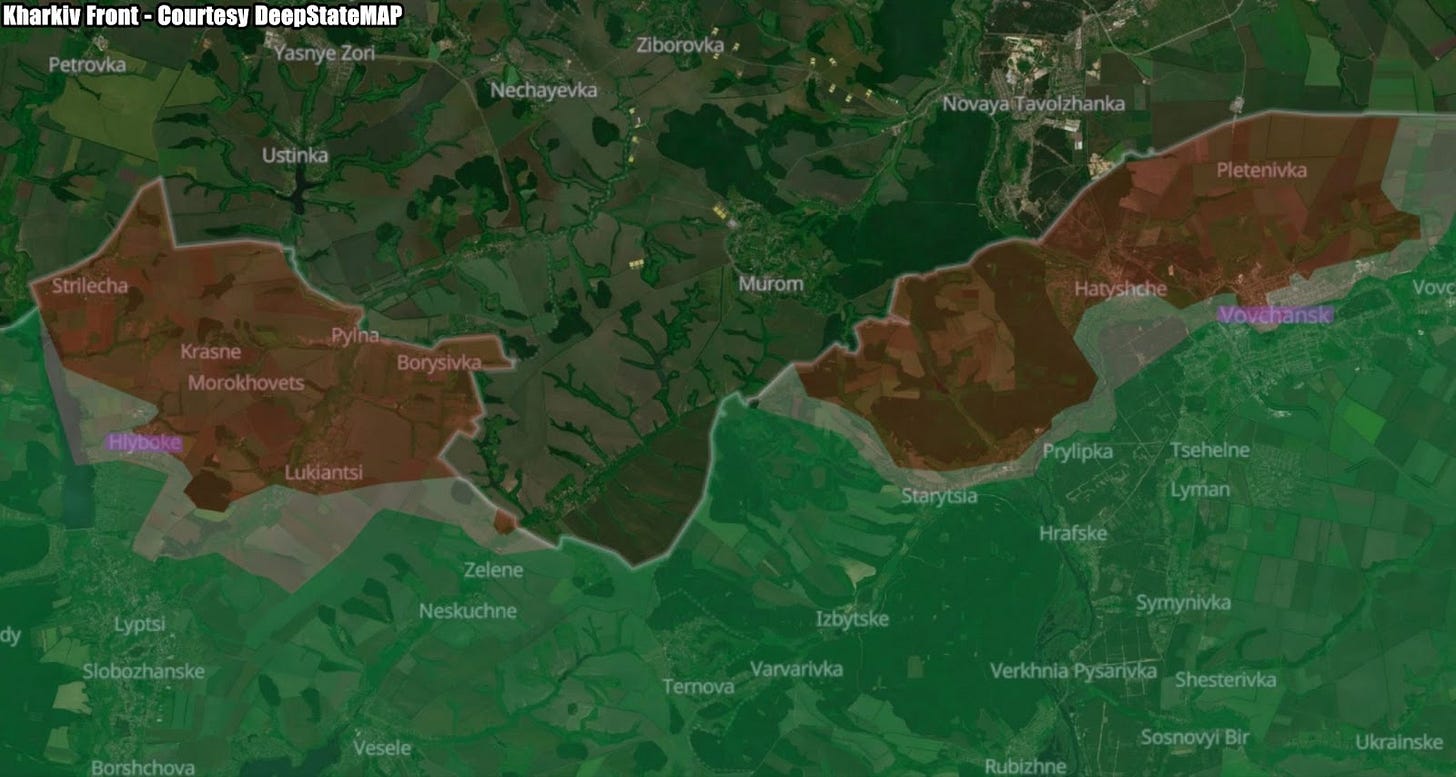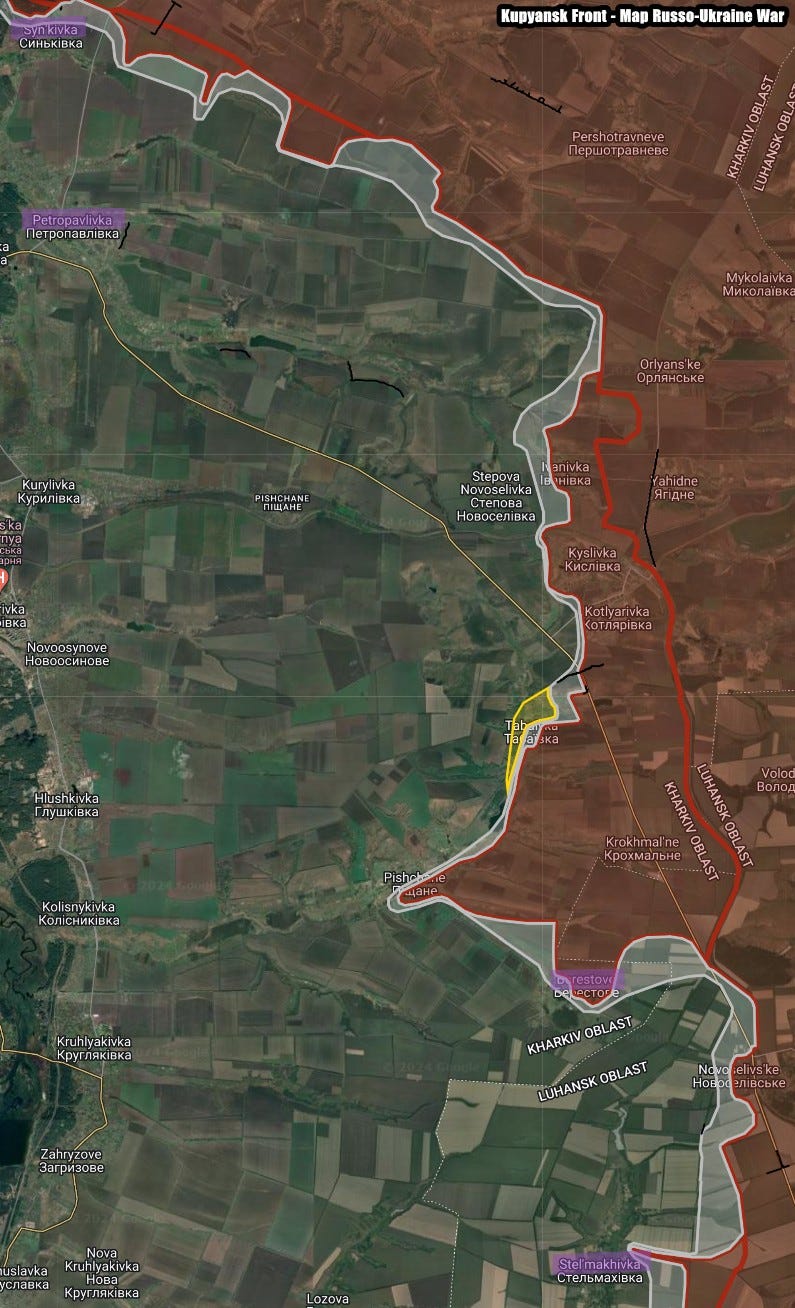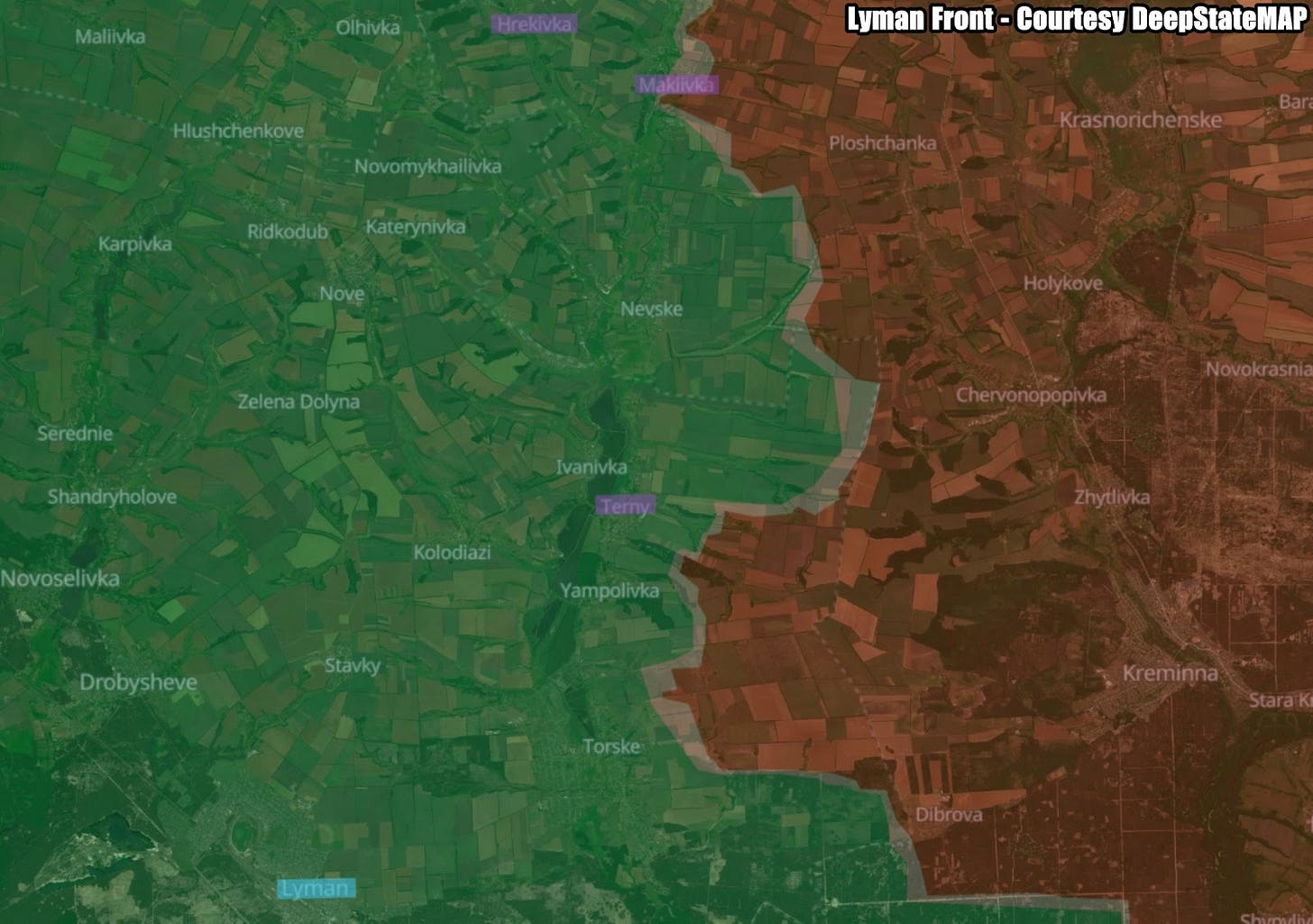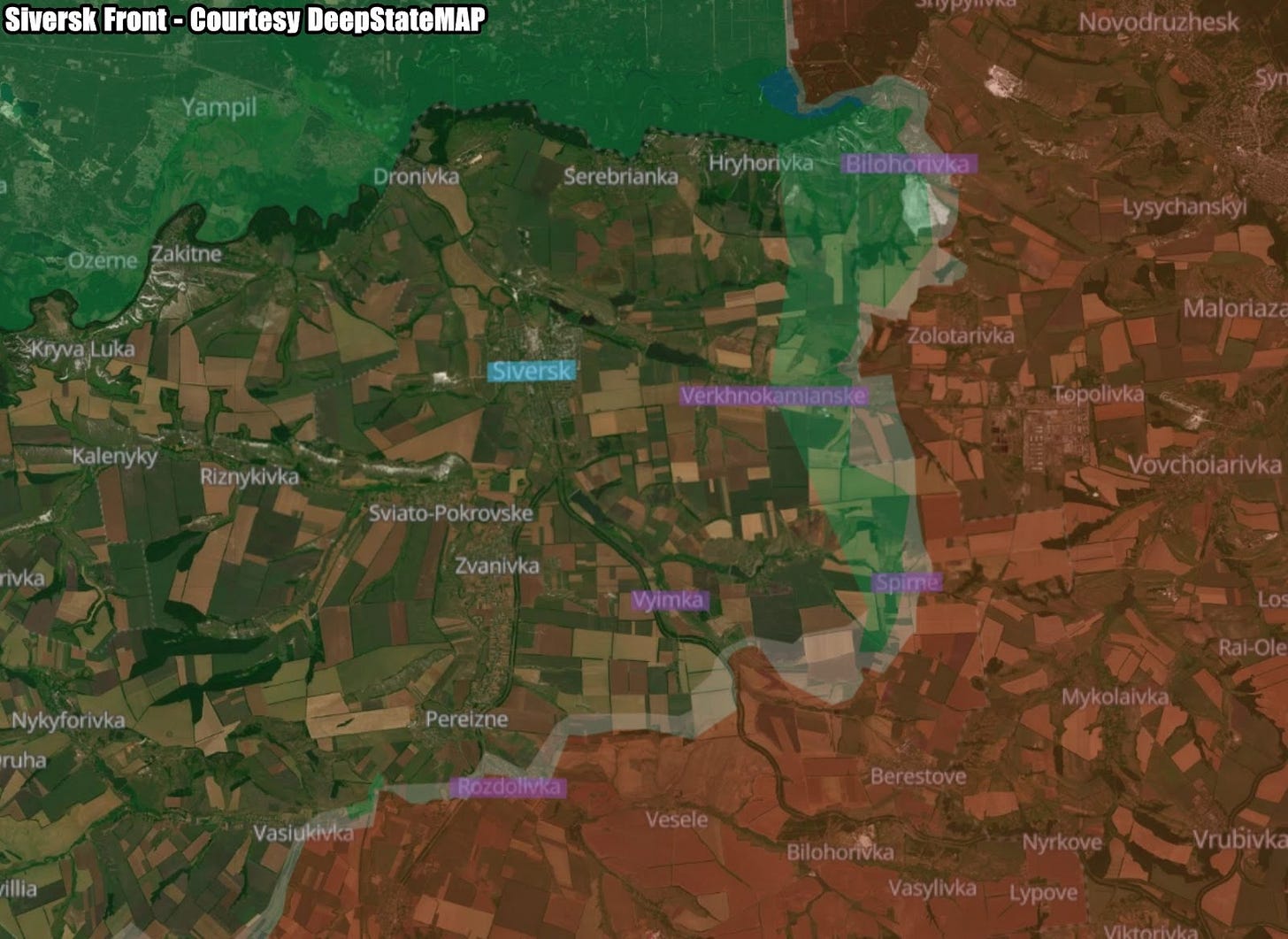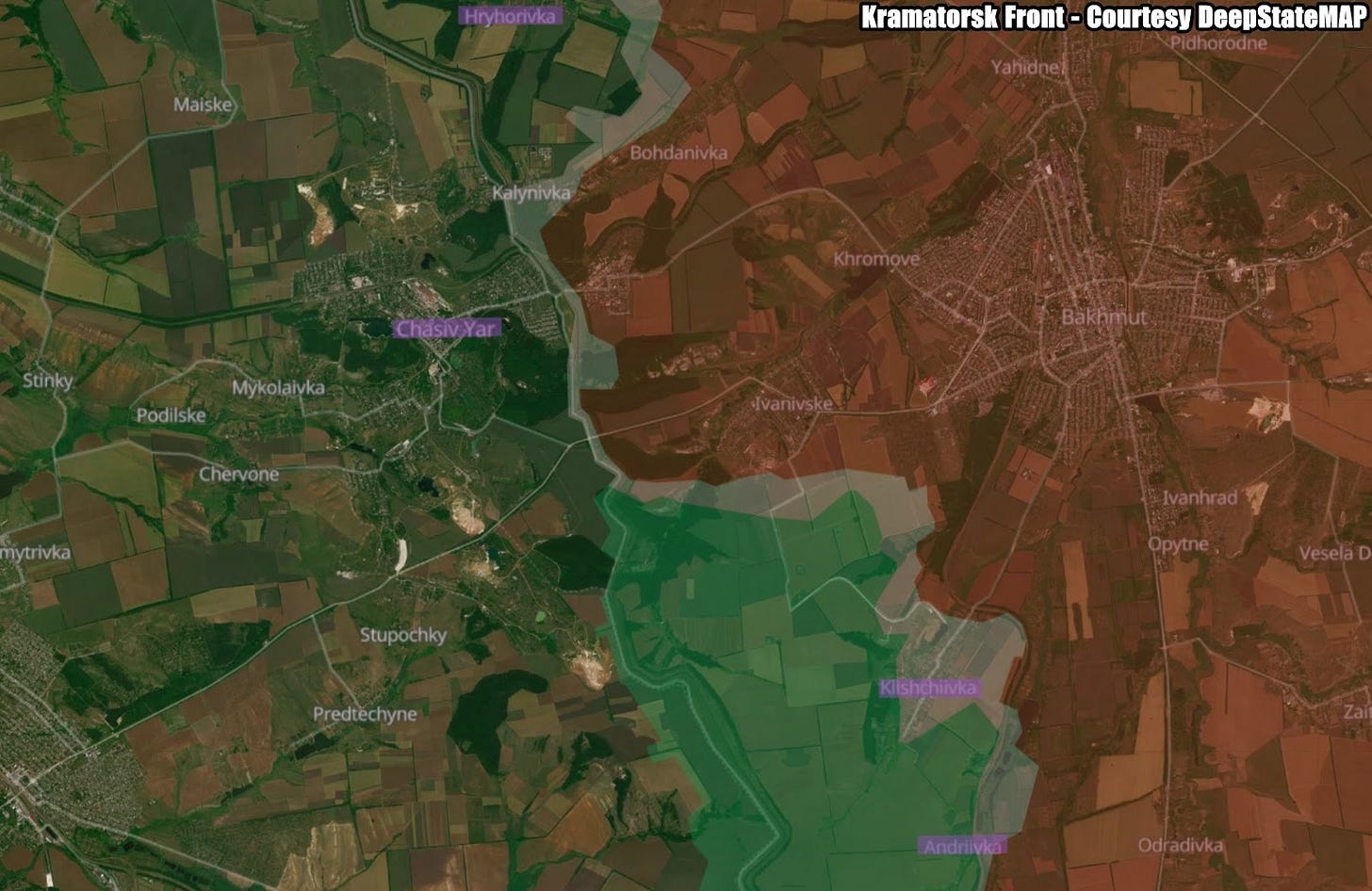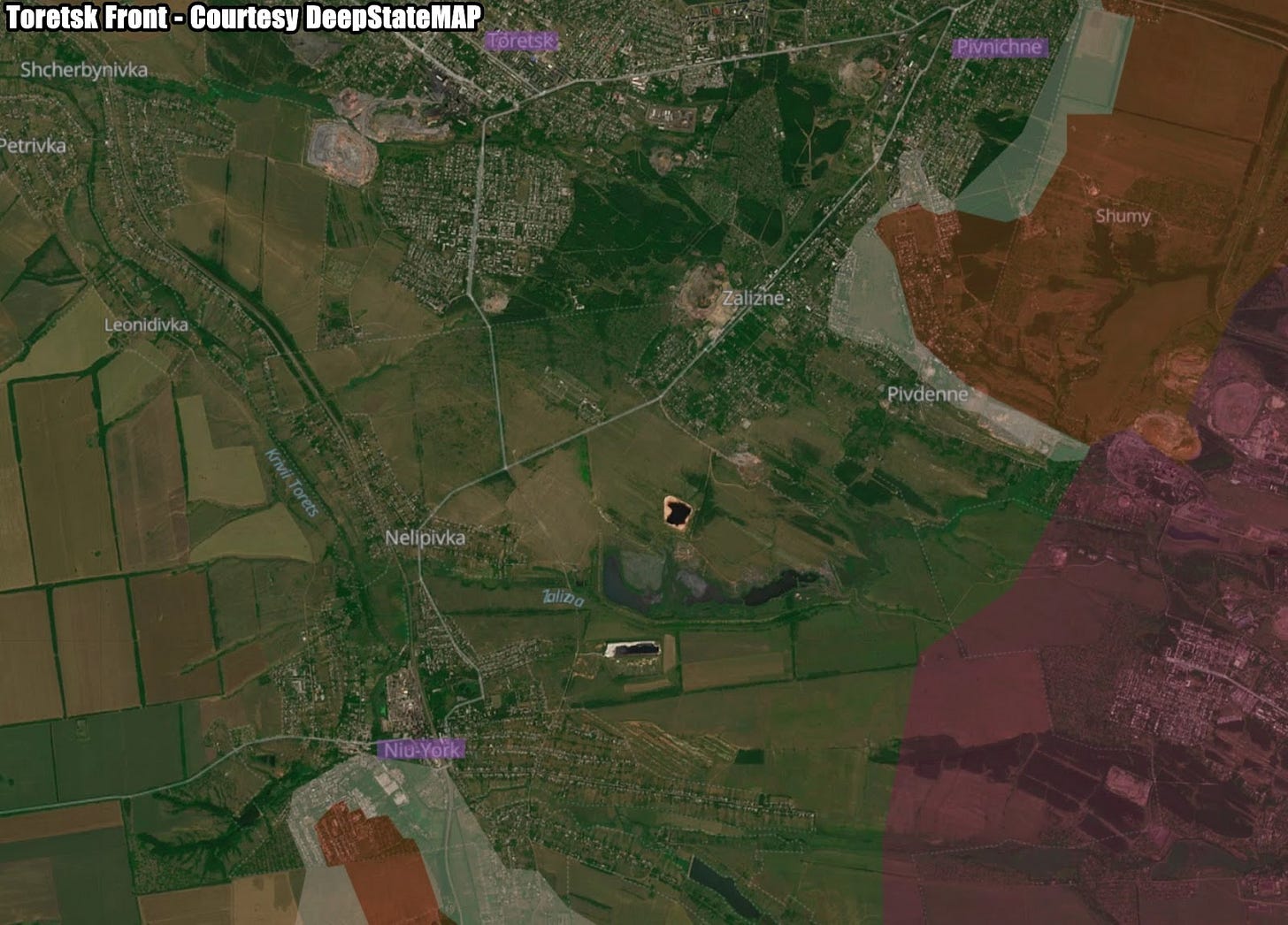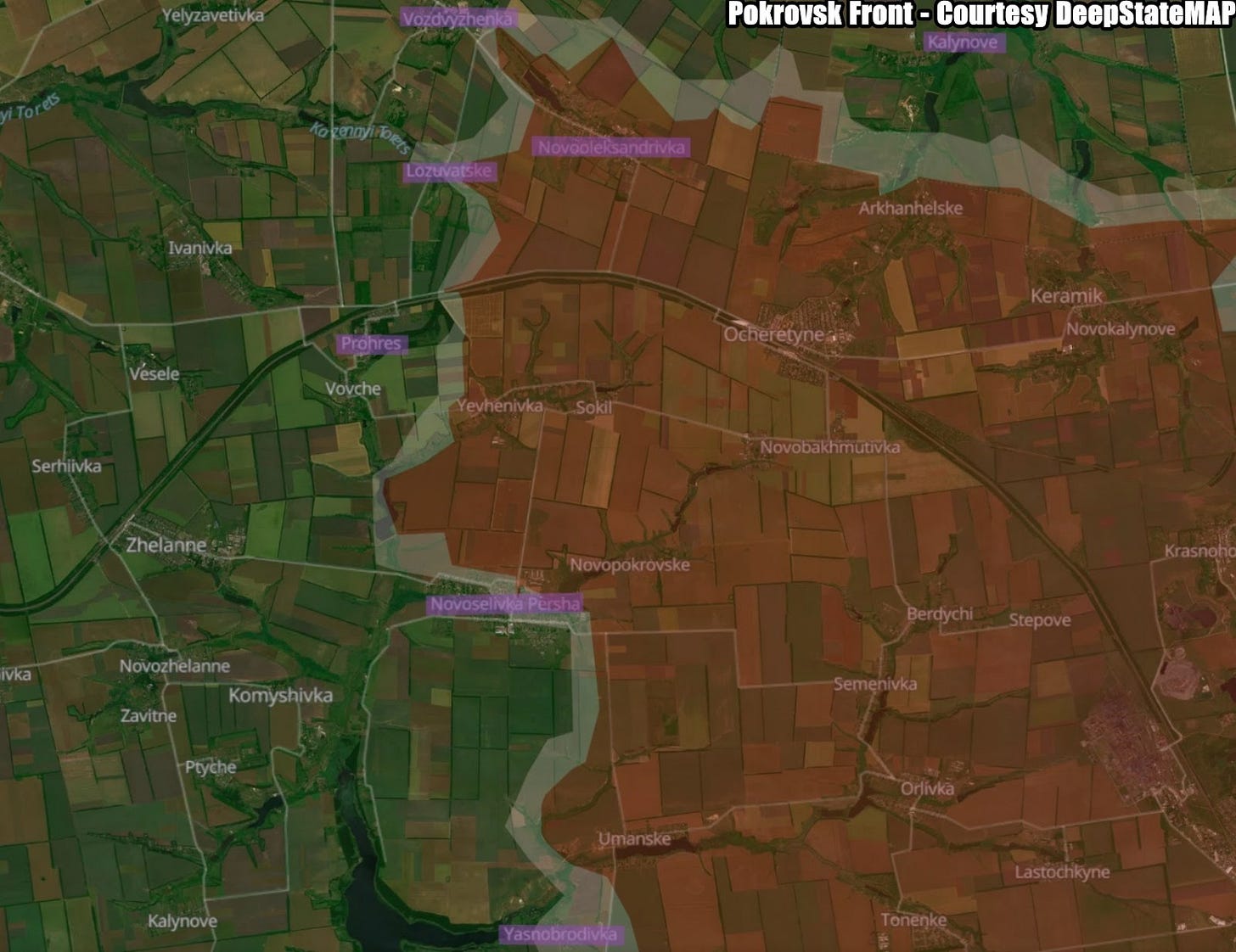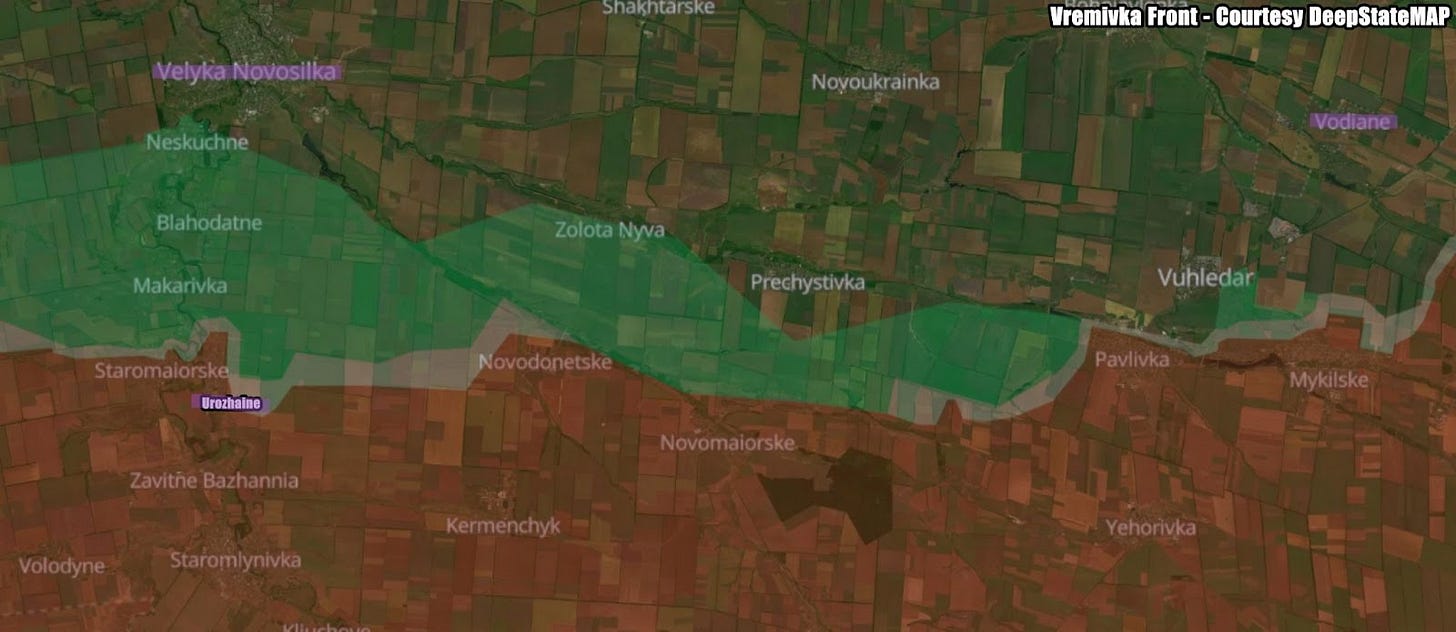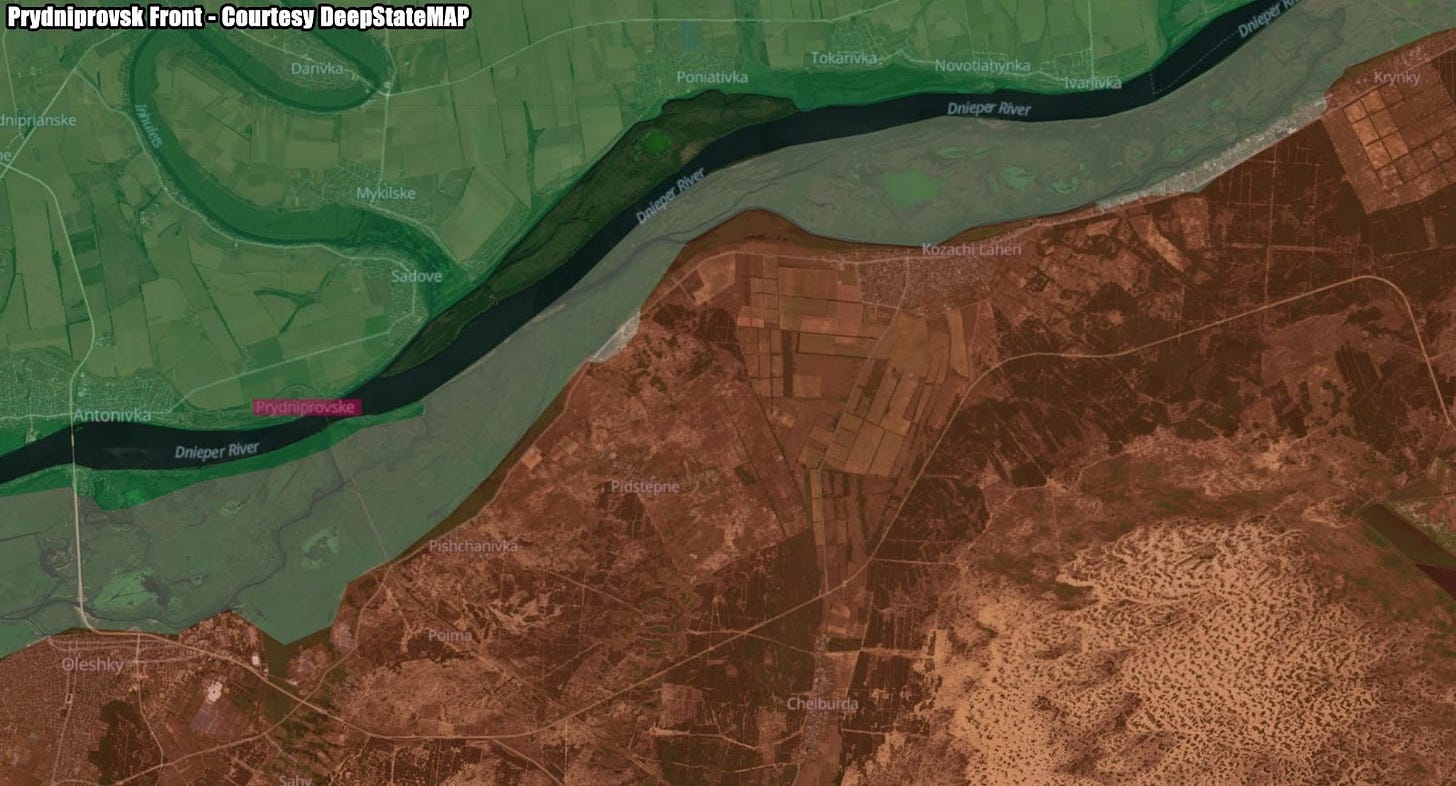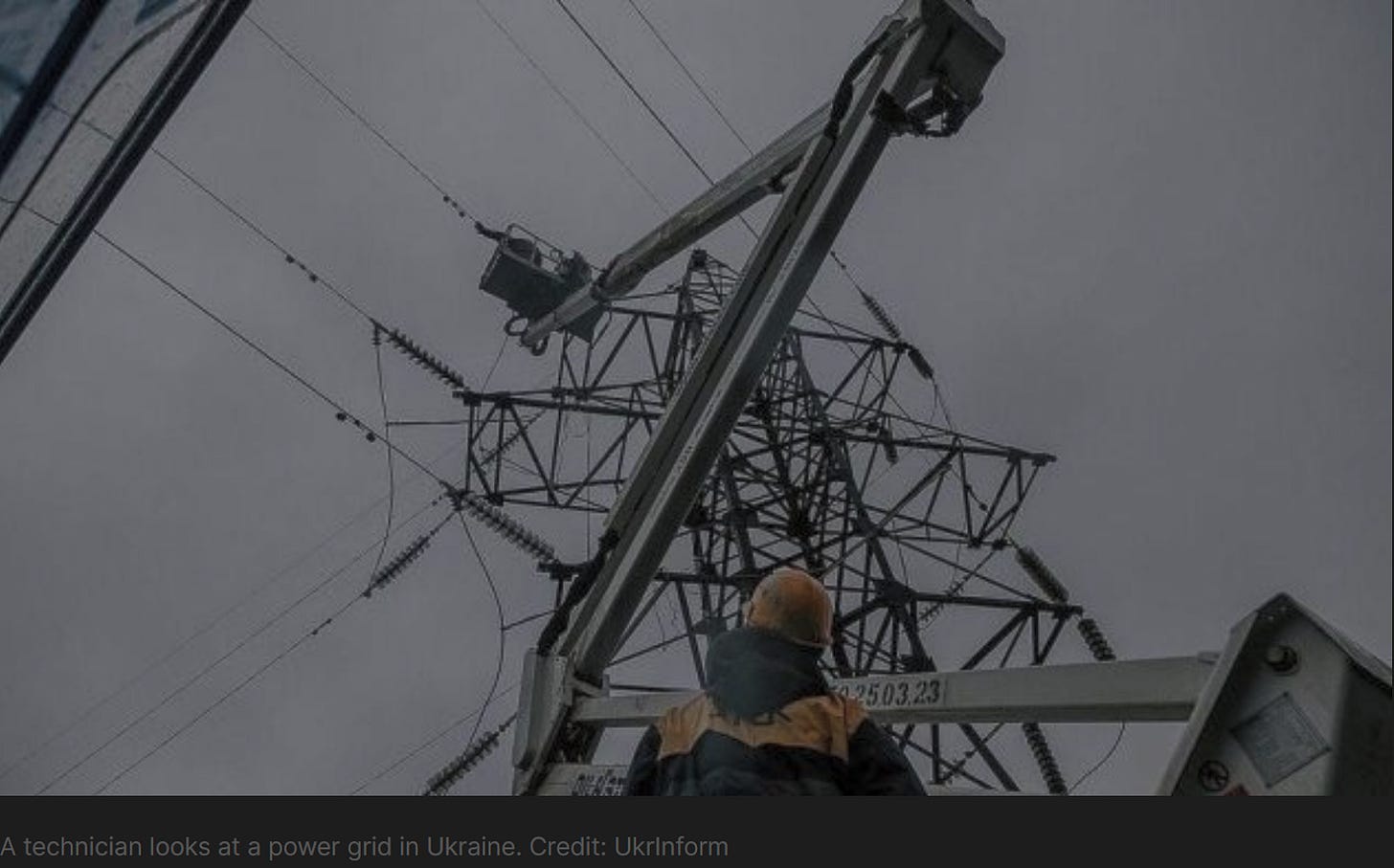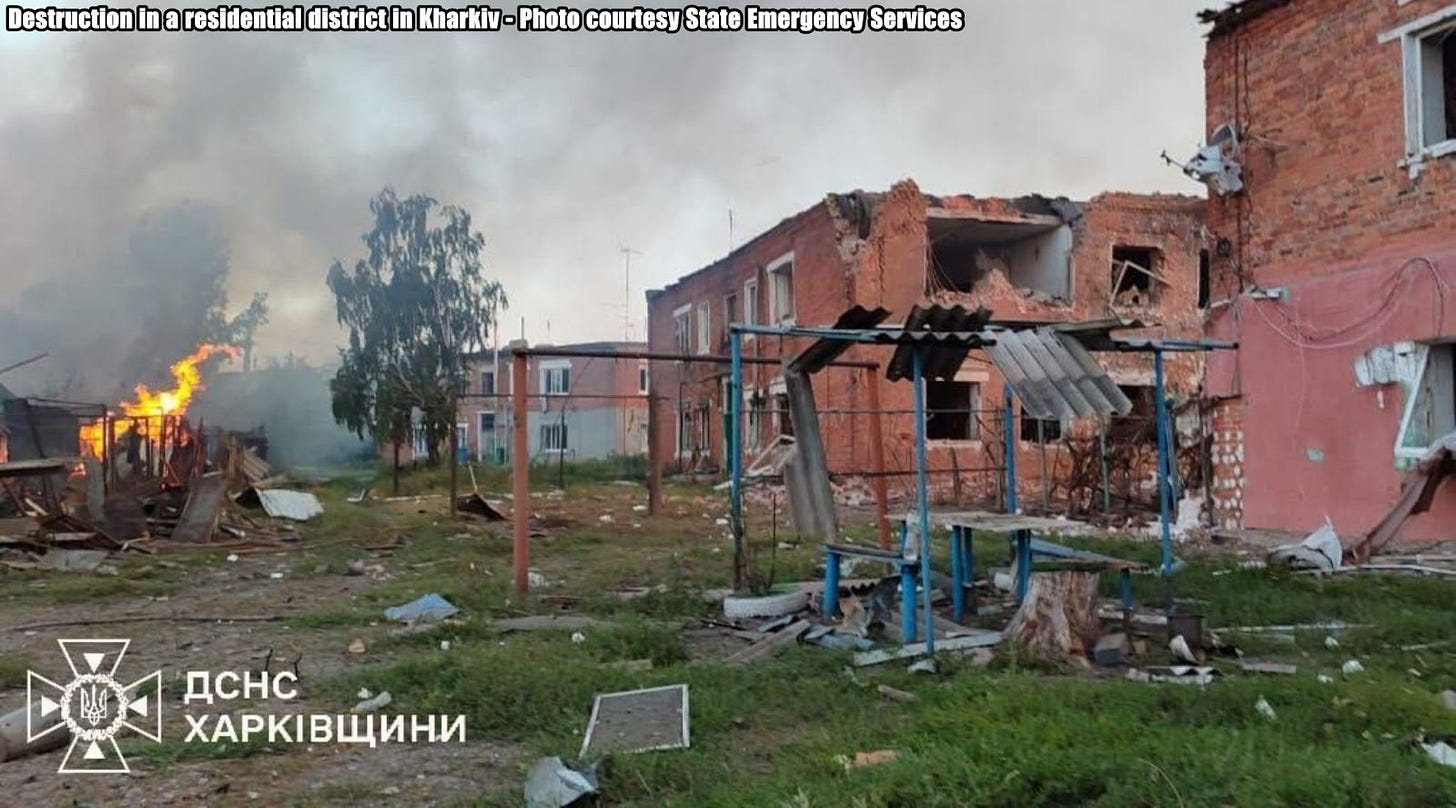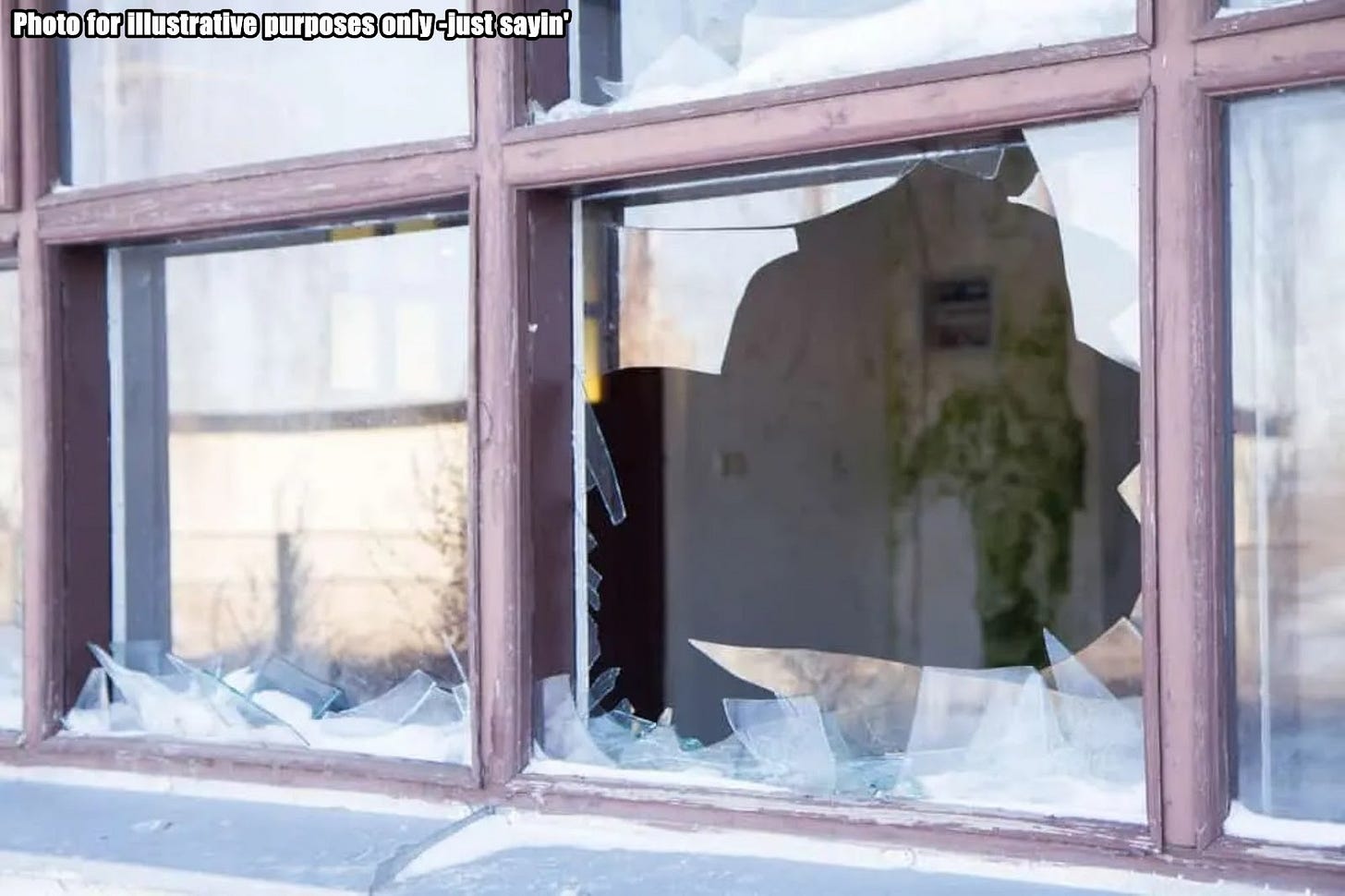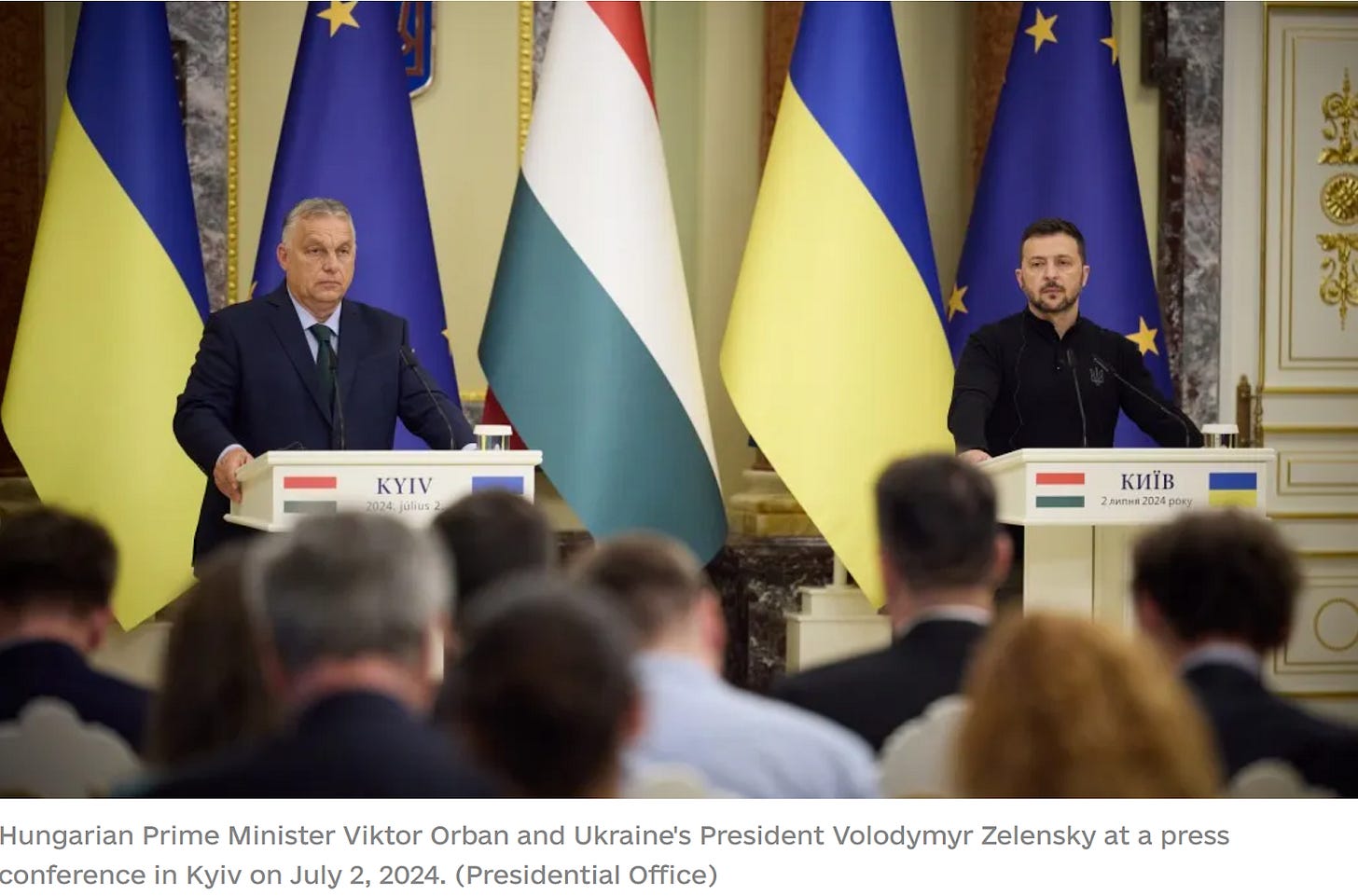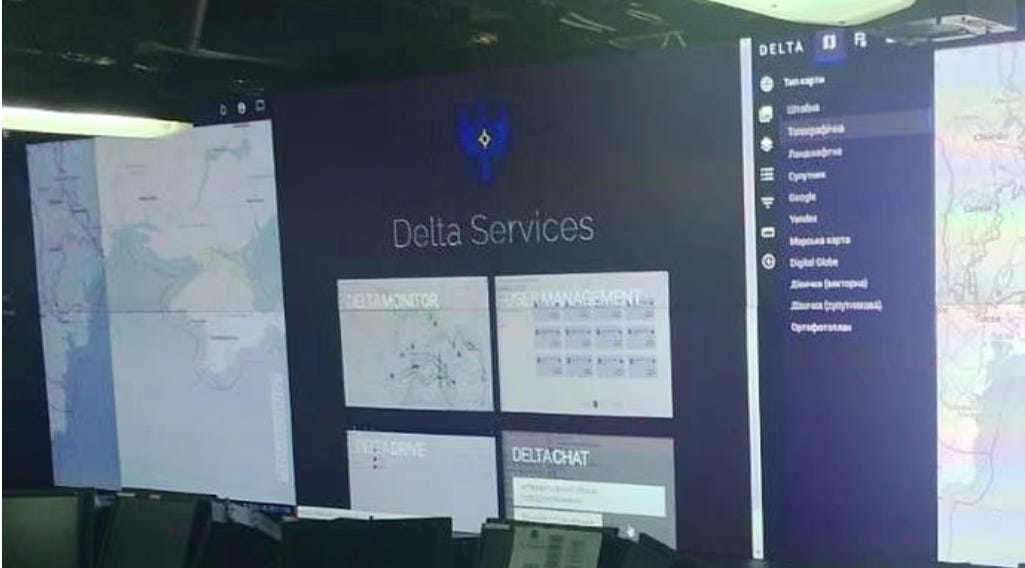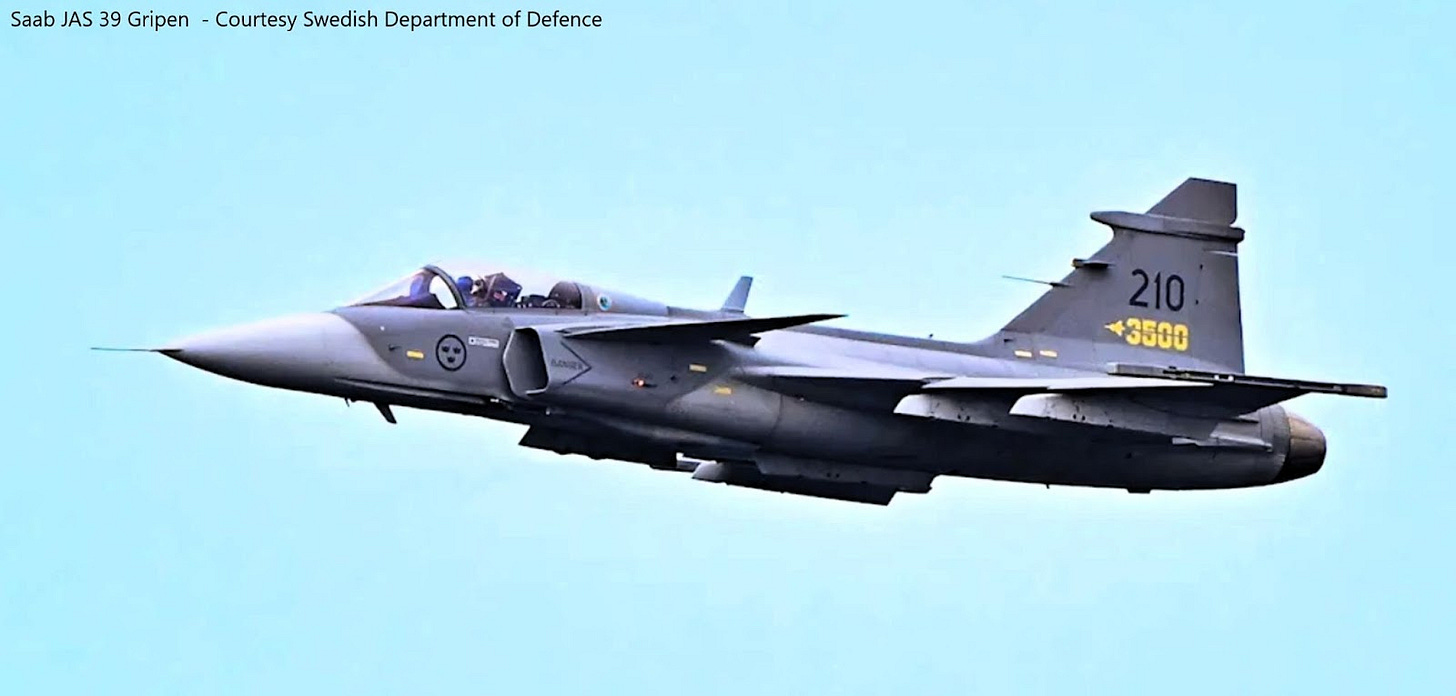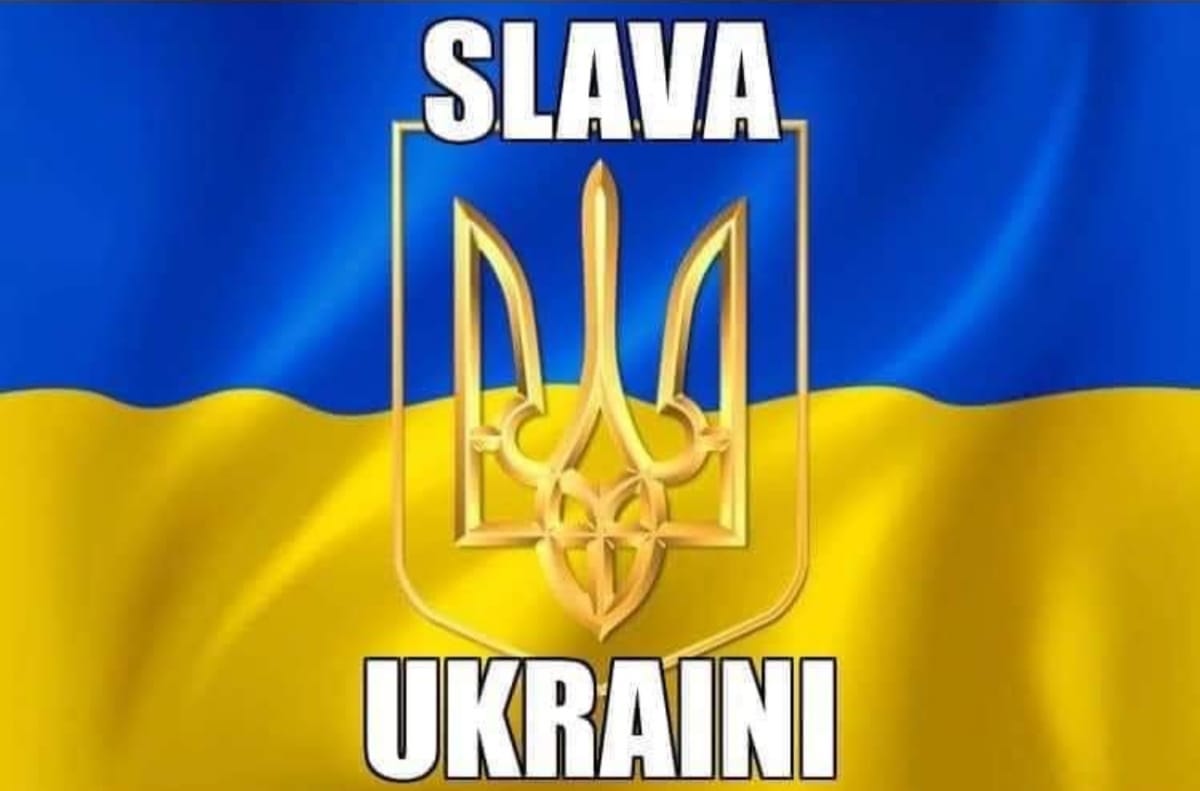Slava Ukraini! In early 2022 I began a Telegram channel aggregating news from a number of sources daily on the war in Ukraine. Since June 2023 I have provided a daily draft for the Ukraine War Brief Podcast collecting news from over 60 sources daily, much of which forms the basis of the script. While the Podcast is on hiatus I will make this Draft available here both on my own Substack and The People’s Media for those who wish to keep up with events on a daily basis.
ALONG THE CONTACT LINE
GSAFU Morning Report
The General Staff of the Armed Forces of Ukraine in its Operational Information update at 22:00 on July 13 stated that day 871 of the full-scale invasion of the Russian Federation against Ukraine was about to begin.
During the past day, 149 combat engagements took place. Over the past 24 hours, the enemy carried out 3 missile strikes, 57 air strikes, 512 drone strikes and more than 3,200 artillery strikes across the positions of Ukrainian forces.
At the same time, Ukrainian soldiers continue to inflict losses in manpower and equipment on the occupying troops, exhausting the enemy along the entire front line and continue to disrupt the plans of Russian occupiers to advance deep into the territory of Ukraine.
Air Force Daily Report
On the night of July 14, 2024, the air defense of eastern Ukraine shot down two guided air missiles of the Kh-59/Kh-69 type, four reconnaissance UAVs: three "Orlan-10" and one "ZALA".
The Khortytsia operational-strategic group
(Responsible for the northeastern part of Ukraine. )
Kharkiv axis: The enemy conducted 13 assault actions supported by aviation, in the areas of Hlyboke and Vovchansk.
Kupyansk axis: The enemy tried to advance 13 times against Ukrainian positions near Synkivka, Petropavlivka, Berestove and Stelmakhivka The situation is under control.
Lyman axis: In this sector today, the enemy was quite active. Russian forces 14 times attacked in the area of Hrekivka, Makiivka and Terny,
Siversk axis: Russian forces carried out 8 assaults in the vicinity of Bilhorivka, Verkhnokamianske, Sprine, Vyimka and Rozdolivka. The situation is under control.
Kramatorsk axis: The enemy attacked 5 times near the settlements of Hyrhorivka, Chasiv Yar, Klishchiivka and Andriivka
Toretsk axis: The situation is tense in this sector. Russia attacked 15 times near Pivnichne, Toretsk and Nui-York.
The Tavria operational-strategic group
(Responsible for the central-eastern and southeastern part of Ukraine.)
Pokrovsk axis: The highest intensity of combat remains in this sector. The enemy conducted 40 attacks against Ukrainian defences in this area over the last day in the vicinity of Kalynove, Vozdvizhenka, Novooleksandrívka, Lozuvatske, Prohes, Novoselivka Persha and Yasnobrodivka
Kurakhove axis: The enemy 17 times unsuccessfully attacked our positions near Krasnohorivka and Paraskovievka. None were successful.
Vremivka axis: Russians carried out 18 offensive actions near Urozhaine, Vodiane, Velika Novosilka
Orikhiv axis: The situation has not changed significantly.
The Odesa operational-strategic group
(Responsible for Kherson, Qırım, (also known as Crimea) and the Black Sea.)
Prydniprovsk axis: In this direction, the situation has not changed significantly. The enemy conducted 2 unsuccessful assault actions on the left bank of the Dnieper.
TEMPORARILY OCCUPIED TERRITORIES
Nothing to report.
THE HOME FRONT
Energy situation should improve after July 20, Shmyhal says
The energy situation in Ukraine should improve after July 20 as the government works to decentralize energy production, Prime Minister Denys Shmyhal said on July 14. The Kyiv Independent reported.
The government has been providing support to a wide spectrum of consumers, ranging from individual households to businesses, to facilitate additional energy generation, Shmyhal said.
The government is utilizing alternate forms of energy, including solar panels and wind turbines, as well as disbursing grants and preferential loans.
Due to dwindling energy supplies caused by Russian attacks, Ukraine's largest privately-owned energy provider, DTEK, has warned that Ukrainians may only have electricity for 6-7 hours per day in the upcoming winter.
In a "worst-case" scenario in which Ukraine is unable to repair damaged energy facilities and prevent future attacks, Ukrainians could experience up to 20 hours of blackouts a day, DTEK Executive Director Dmytro Sakharuk told the Kyiv Independent in an interview in June.
Experts are examining each damaged building in Kharkiv to gauge the feasibility of restoration
In Kharkiv, 4.5 thousand houses have been destroyed so far. Each of the buildings is being examined to determine whether it would be advisable to restore it or to demolish it and build a new one in the same place. Kharkiv Mayor Ihor Terekhov said, UNN reports.
There is a unique reconstruction project in Kharkiv that involves the construction of houses that will be built with underground parking lots and will meet all energy saving requirements.
"There is no other city in Ukraine with the kind of destruction that Kharkiv has seen. Today, 4.5 thousand houses have been destroyed. We are conducting an examination of each house. This is an examination that assesses how possible it is to rebuild this house. Then we do a financial assessment, which estimates the costs that need to be made to rebuild this house and the costs that need to be made to build a new house. When it comes to building a new house and it costs as much as it takes to repair it, then of course we will build new houses. We have a unique reconstruction project, and these are completely different houses that will be built with underground parking lots, and they will meet all the energy saving requirements. In each case, we do everything separately so that both people and builders understand what we are going to do," Terekhov said.
RUSSIAN WORLD
“Mysterious” deaths of Russian political detainees
The Institute for the Study of War (ISW), a US based think tank, in its July 13 Russian Offensive Campaign Assessment stated that a detained Russian businessman and a Russian military official who were reportedly connected to detained former Deputy Defense Minister Timur Ivanov recently died on the same day.
Russian media reported that Igor Kotelnikov, a businessman accused of bribing senior officials in the Russian Ministry of Defense (MoD), died of heart failure in a detention facility in Moscow on July 8. A Russian insider source claimed that Russian Federal Security (FSB) officers were attempting to pressure Kotelnikov to testify against Ivanov and other unnamed MoD officials when Kotelnikov fell ill in solitary confinement.
A Wagner-affiliated milblogger claimed that Kotelnikov had agreed with FSB military counterintelligence to testify against Ivanov.
Russian media reported that the head of the MoD's State Examination Department and Ivanov's former subordinate, Magomed Khandayev, also died on July 8 in Moscow of unspecified causes. Russian authorities reportedly questioned Khandayev as a witness in Ivanov's case, but Khandayev was not facing any criminal charges of his own.
NEWS WORLDWIDE
Dutch company fined 1.8 million euros for participation in Crimean Bridge construction
In the Netherlands, construction equipment supplier Dieseko Group B.V. was fined nearly 1.8 million euros ($1.9 million) for its involvement in the illegal construction of the Crimean bridge, violating international trade sanctions. The Kyiv Independent reports.
From 2015 to 2016, the company sold equipment and provided technical support for the bridge project, despite EU sanctions imposed in 2014 against Russia over the occupation of Crimea. The company pleaded guilty, paid the settlement, and pledged to avoid such violations in the future.
The settlement included a fine of 180,000 euros ($196,000) and then the seizure of 1.6 million euros ($1.7 million) in illegal gains.
The Honorary Consul of Ukraine in the Netherlands noted that seven Dutch companies participated in the bridge's construction.
The bridge, also called the Kerch Bridge, connects the Russian mainland with the Russian-occupied Crimea peninsula, and has long been a crucial supply route for the Russian military in Ukraine.
Construction on the 19-kilometer-long bridge began after the illegal 2014 annexation and occupation of Crimea, and was completed in 2018.
Bloomberg: Orban spoke against Ukraine's NATO membership during meeting with Zelensky in Washington
Hungarian Prime Minister Viktor Orban spoke against Ukraine’s NATO membership during a plenary meeting with President Volodymyr Zelensky at the Alliance’s Washington Summit, Bloomberg reported on July 13. The Kyiv Independent reports.
Orban refused to back military support for Ukraine during the summit on July 11 and suggested that Kyiv should not join the alliance, according to Bloomberg’s sources. The comment sparked backlash from other leaders.
Budapest has repeatedly opposed Ukraine's accession to NATO and the EU, sanctions on Russia, undermined Western aid efforts for Ukraine, and maintained close relations with Moscow throughout the full-scale war.
Orban met Zelensky in Kyiv at the start of July after taking over the rotating presidency on July 1. He urged the Ukrainian president to consider a ceasefire to "speed up peace talks.”
Orban angered many in the EU after meeting with Russian President Vladimir Putin on July 5 to discuss the invasion of Ukraine. He said that Ukraine and Russia's stances on the war and prospects for peace are "very far apart."
MILITARY & TECH
NATO officials praise Ukraine's Delta combat system
General Philippe Lavigne, NATO's Supreme Allied Commander Transformation, and Vice Admiral Jeff Hughes, Deputy Chief of Staff for NATO Capability Development, have both lauded Ukraine's DELTA combat system. Ukraine’s Ministry of Defence reports.
NATO representatives recognised significant work to secure interoperability between Ukraine and NATO systems, as well as a novel approach to the development of the DELTA combat system.
"DELTA has demonstrated that it can exchange information with other NATO allies.With the introduction of DELTA, Ukraine is solidifying its place in the world as a powerful innovation hub that develops practical solutions for wartime." Kateryna Chernohorenko, Ukraine's Deputy Minister of Defence for Digital Development, Digital Transformation and Digitalisation stated
DELTA is a distinct ecosystem of military equipment designed to meet NATO criteria. It allows soldiers to view the battlefield in real time and displays the air, land, and sea conditions on a digital map.
Delta is a situational awareness and battlefield management system developed and used in Ukraine. The system integrates information from a broad network of participants, including troops, civilian officials, and vetted bystanders, and a wide range of streams, including sensors, intelligence sources, surveillance satellites and drones, especially geolocated data, which it maps in real time, along with pictures of enemy assets.
Photos below courtesy of Ukraine's Ministry of Defence for Digital Development
Delta is used by the Ukrainian military services, as part of the Russo-Ukrainian War, especially after the launch of the Russian invasion of Ukraine, for a wide range of battlefield management tasks, including the planning of operations and combat missions, coordination between units, and secure exchange of information about the location of enemy forces.
Ukraine and Sweden are negotiating Saab JAS-39 Gripen fighters for Ukraine
Deputy head of the Office of the President Ihor Zhovkvareported in an interview with Voice of America that Ukraine and Sweden are negotiating the provision of Saab JAS-39 Gripen fighters for the Ukrainian Air Force
“This is a topic that my president constantly raises before the leadership of Sweden. And it was like that even before Sweden joined NATO. For obvious reasons, then they were not ready to make any promises, since they were not ready to make any promises, since they were finalizing their membership in the Alliance”
However Sweden has already become a member of NATO, so President Zelenskyy is again communicating with the Swedish Prime Minister Ulf Kristersson on this matter, and the Ukrainian Ministry of Defence - with relative bodies of Sweden.
Earlier, the Minister of Foreign Affairs of Sweden, Tobias Billström, said Sweden did not supply fighter jets to Ukraine because Ukraine concluded it would be too difficult to deploy two fighter jet systems at the same time (F-16 and Gripen).
At the same time, according to the head of the Swedish Foreign Ministry, his country remains open to supplying these capabilities to Kyiv.
Sweden and the Swedish government have no restrictions on these discussions once the F-16s are deployed, but that decision was made by the Ukrainian government, not the Swedish one, the diplomat said.
That’s it for today’s Draft folks if you would like to keep up with events in Ukraine daily please consider subscribing, its free!
Feel free to share this update with your friends. Heroyam Slava!







